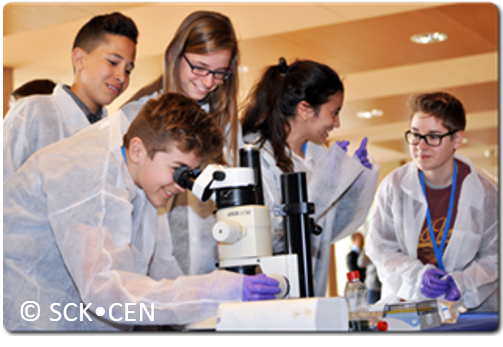Unravelling the genetic basis of ethanol tolerance and maximal ethanol accumulation capacity in yeast for very-high gravity bioethanol production

Category
Ph D Defense
Date
2018-12-17 09:30
Venue
KU Leuven, Aula van de Tweede Hoofdwet, 1.02 - Kasteelpark Arenberg 41
3001 Heverlee, Belgie
3001 Heverlee, Belgie
Promovendus/a: Annelies Goovaerts
Promotor(en): Prof. dr. Johan Thevelein
Concerns about global warming and climate change due to greenhouse gas emissions and the growing energy demand for transportation, heating and industrial processes has encouraged the search for sustainable renewable energy sources. Today, bioethanol is the most common biofuel mainly derived from starch or sugar cane and shows great potential as a building block for bio-based chemicals such as bioplastics. Saccharomyces cerevisiae is currently the preferred micro-organism for bioethanol production due to its highly efficient ethanol productivity and high tolerance to various fermentation-associated stresses such as high ethanol concentrations. Although much research has been done to understand the genetic basis of high ethanol tolerance in yeast, most of the research was focused on low and moderate ethanol tolerance in laboratory yeast strains. Previous research in our laboratory has been initiated to study high ethanol tolerance and maximal ethanol accumulation capacity in industrial yeast strains by pooled-segregant whole-genome sequence analysis in order to find genetic determinants that contribute to both of these important industrial traits.In the first part of this thesis, we have further explored the genetic basis of high ethanol tolerance in a former Brazilian bioethanol production strain VR1 which was originally initiated by the research of Dr. S. Swinnen. In the second part of this thesis, we have further described the genetic dissection of maximal ethanol accumulation capacity of a sake strain CBS1585. Finally, we have introduced a specific combination of causative alleles in the ER18 strain which could clearly improve this strain for ethanol tolerance of cell proliferation and maximal ethanol accumulation capacity. However, it still remains to be investigated to what extent these causative genes are universal determinants so that they can be used to improve other industrial yeast strains for bioethanol production. Altogether, this work has provided new insights into the genetic basis of high ethanol tolerance of cell proliferation and maximal ethanol accumulation capacity of industrial yeast strains. All causative quantitative trait genes (URA3, VPS70, MKT1 and APJ1) of the major QTLs for high ethanol tolerance in VR1-5B have now been identified. For maximal ethanol accumulation capacity two new causative genes (PTK2 and SHE4) were identified. Overall, all these identified causative genes are involved in cellular processes that counteract ethanol toxicity.
All Dates
- 2018-12-17 09:30
Powered by iCagenda






